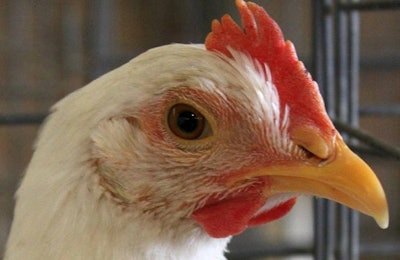
Multiple approaches are being employed to boost the poultry industry of the West African state – from youth training to easier farmer financing, and calling on consumers to support local producers.
Up to 18,000 young people will receive training as part of the new National Egg Production Scheme (NEGPRO) in Ondo state in the southwestern part of the country, according to New Telegraph.
Announcing the inauguration of the Scheme, Governor Akeredolo, said the Ondo State government is working with the Federal College of Agriculture in Akure to create jobs for local young people. Each of the 18 local government areas will select 1,000 young men and women for training.
The move was welcomed by the provost of FECA, Dr. Samson Odedina, as a contribution to Nigeria’s economic diversification policy.
“We have been training the youths every year through the Federal Ministry of Agriculture on egg production,” he said. “People have been registering on our website. It is two-week training that could transform the lives of our youths.”
A recent article in Business Day highlights the gap between the output by Nigeria’s poultry sector and its potential, which could be worth as much as NGN1.2 trillion (US$3.3 billion).
While acknowledging the positive impacts that the disbursement of NGN75 billion in the form of loans to the nation’s farmers from the Central Bank of Nigeria, success for the Nigerian poultry industry will also require consumers to choose local poultry products over imports. It is estimated that imports account for 30 percent of national demand for poultry products.
This is not the first scheme aimed at giving a boost to Nigeria’s poultry sector, which has been heavily challenged by a number of issues including disease and high feed prices. A recent initiative in Sokoto state was set up to provide technical expertise in a bid to create two million new jobs in the sector.
Production from Nigeria’s hen egg sector was 505,000 metric tons in 2016, according to the statistics arm of the United Nations’ Food and Agriculture Organization, FAOstat. This represents an increase of more than 3 percent from the previous year’s figure of 489,000 metric tons. The latest data on meat production from indigenous chickens is for 2013, when FAOstat calculated output at just under 170,000 metric tons.
















